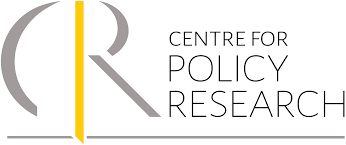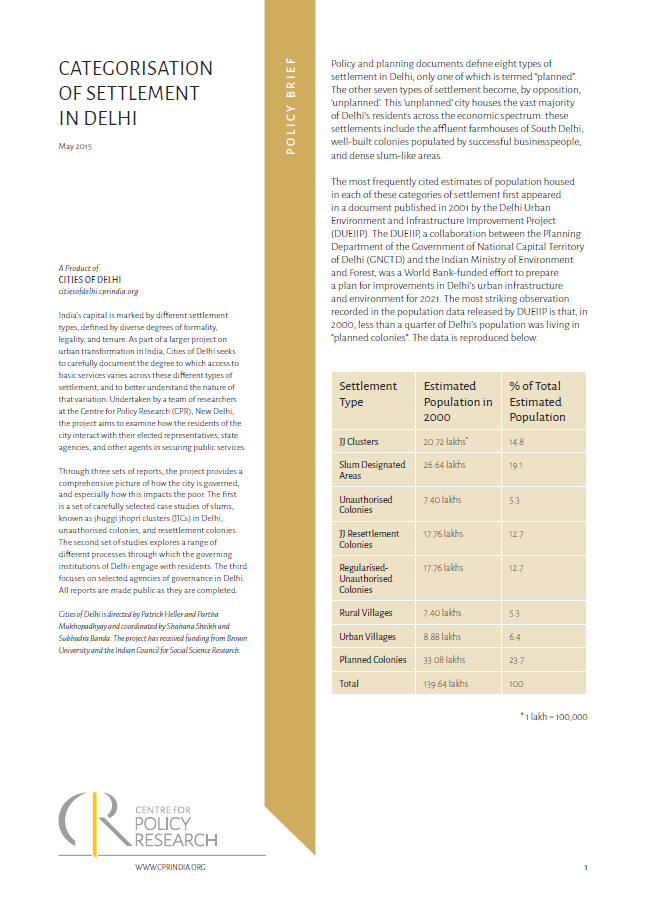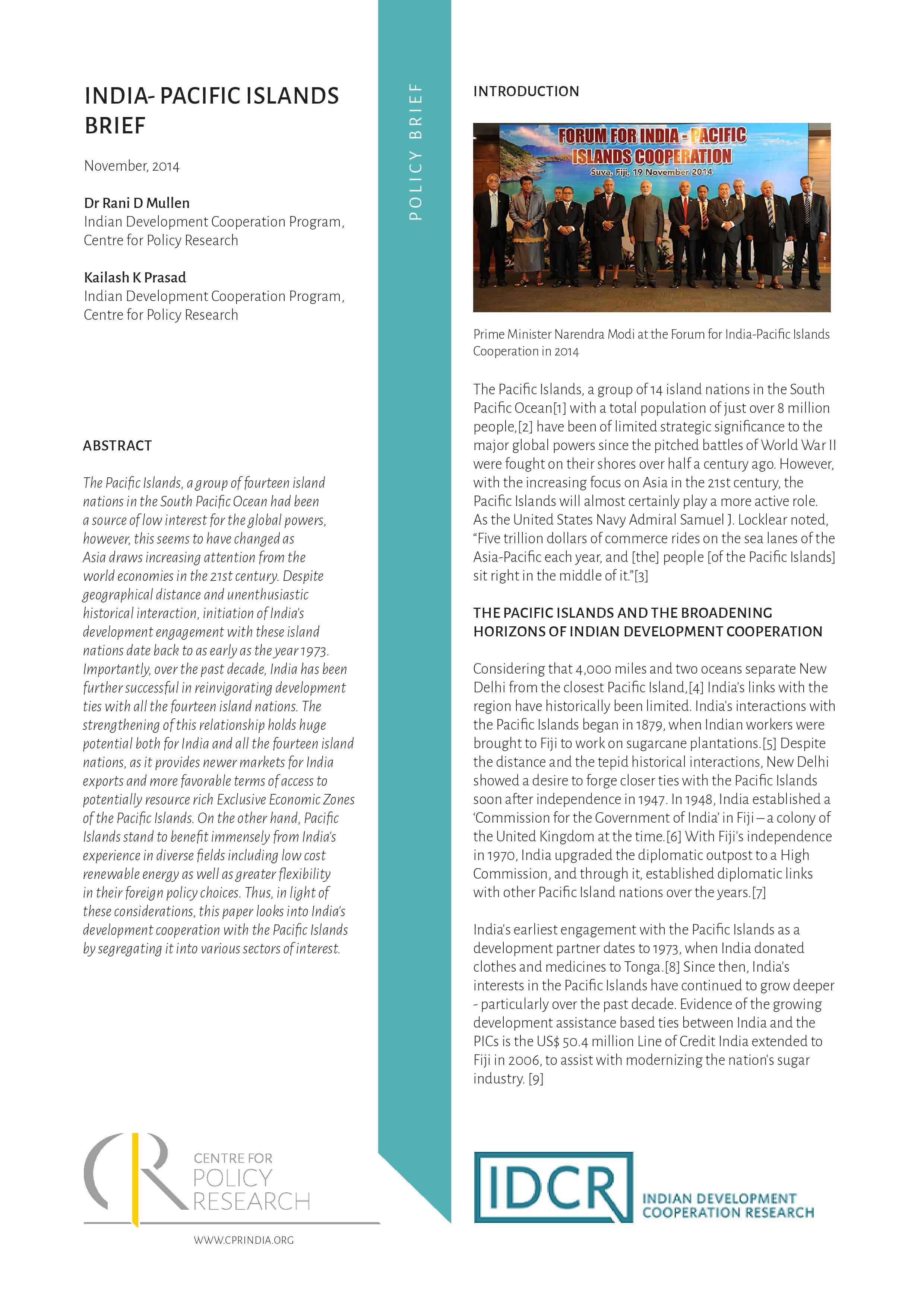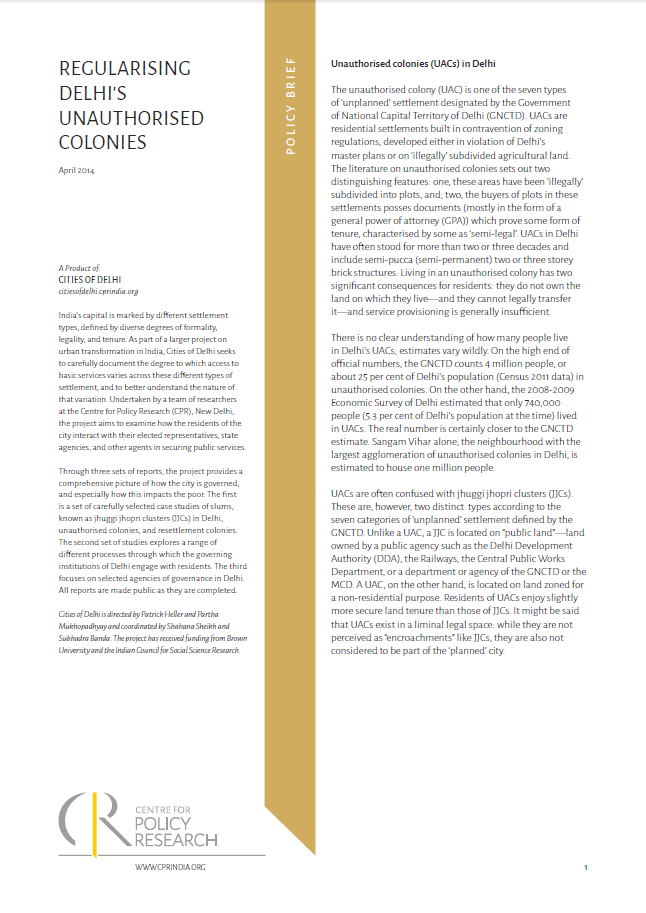Focal point
Location
Dharam Marg, Chanakyapuri
New Delhi 110021
The Centre for Policy Research (CPR) has been one of India’s leading public policy think tanks since 1973. The Centre is a non-profit, non-partisan independent institution dedicated to conducting research that contributes to the production of high quality scholarship, better policies, and a more robust public discourse about the structures and processes that shape life in India.
CPR’s community of distinguished academics and practitioners drawn from different disciplines and professional backgrounds. The institution nurtures and supports scholarly excellence. However,the institution as such does not take a collective position on issues. CPR's scholars have complete autonomy to express their individual views. Senior faculty collaborate with more than 50 young professionals and academics at CPR and with partners around the globe to investigate topics critical to India’s future.
Members:
Resources
Displaying 16 - 20 of 21Categorisation of settlement in Delhi
Policy and planning documents define eight types of settlement in Delhi, only one of which is termed “planned”. The other seven types of settlement become, by opposition, ‘unplanned’. This ‘unplanned’ city houses the vast majority of Delhi’s residents across the economic spectrum: these settlements include the affluent farmhouses of South Delhi, well-built colonies populated by successful businesspeople, and dense slum-like areas.
India - Pacific Islands brief
The Pacific Islands, a group of fourteen island nations in the South Pacific Ocean had been a source of low interest for the global powers, however, this seems to have changed as Asia draws increasing attention from the world economies in the 21st century. Despite geographical distance and unenthusiastic historical interaction, initiation of India’s development engagement with these island nations date back to as early as the year 1973.
Regularising Delhi's unauthorised colonies
The unauthorised colony (UAC) is one of the seven types of ‘unplanned’ settlement designated by the Government of National Capital Territory of Delhi (GNCTD). UACs are residential settlements built in contravention of zoning regulations, developed either in violation of Delhi’s master plans or on ‘illegally’ subdivided agricultural land.
Community Conserved Areas in South Asia: Case studies and analyses from Bangladesh, India, Nepal, Pakistan and Sri Lanka
This report is based on research and analysis undertaken with the objective of deepening the understanding of CCAs in India, primarily to achieve two goals. Firstly, to bring to light the unknown conservation efforts undertaken in India and secondly, to attempt an action plan that would cater to the individual and overall needs of these areas. This report is based on research in nineteen sites across six Indian states, studied over a year.
Report on the National Commission for Scheduled Tribes
The objectives of the National Commission for Scheduled Tribes are to act as an independent agency that will investigate, monitor and record any violation of the Constitutional rights of the Scheduled Tribes, suggest measures for their development and in general act on their behalf. This report focuses on the extent to which the Commission performs its role and how effectively it does so. It does not touch upon the wider issues pertaining to the Scheduled Tribes, except insofar as they are addressed or not addressed by the Commission.




